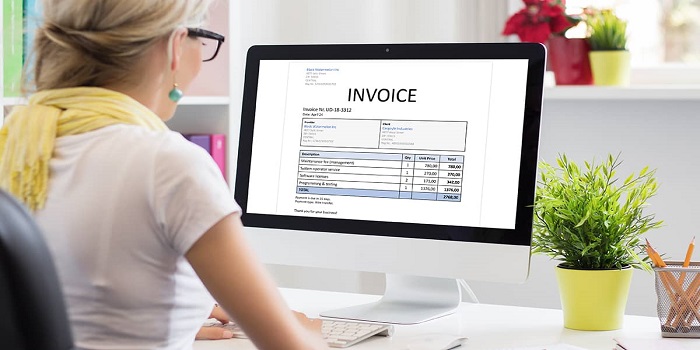Mandatory e-Invoicing in India: Terms and Processes
E-Invoices will be mandatory in India from 1 April 2022 for business with a turnover of 20 crores and above. Read this article to learn about the processes involved for filing an e-Invoice and the linkages among e-Invoices, GST and e-Way Bill generation


With the country moving towards a digitalized system, the government has now rolled out a notification which states that businesses with 20 crores and above turnover will have to issue e-Invoices from 1 April 2022. This article will address the association between e-Invoices and e-Way Bill generation; the processes involved for filing an e-Invoice; the advantages and challenges that this system will bring.
The Linkages Between e-Invoice and e-Way Bills
Electronic-Way (e-Way) bill is a document introduced beneath the Goods and Services Tax (GST) regime which has to be generated before transporting or shipping merchandise value greater than Rs. 50,000 within the state or inter-state.
- Part One consists of the supplier and recipient’s GSTIN, delivery address, HSN code, invoice number, etc.; and
- Part Two consists of transporter details.
This step towards linking the e-Way bills with GST return filing is also expected to reduce tax evasion cases in the country. To ensure this, the system is built in such a way that it blocks the generation of e-Way bills if a business has failed to file two or more consecutive GST returns.
- IRN-based e-Way bill generation where the user needs to enter the Invoice Reference Number (IRN) to generate an e-Way bill;
- Bulk e-Way bill generation for organizations that do high-volume transactions per day; and
- Print e-Way bill wherein the user can get a bill printed upon clicking the ‘Print EWB’ option and entering the EWB number.
Implementing e-Way Bills through IRNs
- Upload your invoice on the Invoice Registration Portal,
- Wait for the invoice verification and validation, post which an IRN and a QR code for the invoice will be generated,
- Log into your e-Way bill portal and enter the IRN for the invoice,
- An e-Way bill will be generated after relevant data is auto-filled,
- Click the ‘Submit’ button and download your e-Way bill in the required format.
Advantages of e-Invoicing
- Save Time: e-Invoicing cuts down on several steps of the invoicing process. The automated system reduces the reliability on human verification of data and manual searching and filing of GST details.
- Cost-Efficient: It will cut down unnecessary expenses such as postal fees and other overhead charges.
- More Accuracy: Since the entire system is automized, e-Invoicing is expected to reduce dependency on manual input. This will result in cutting down mistakes such as typos, loss of data, etc.
- Better Customer Service: An e-Invoice is not only convenient for businesses but the customer as well. While the customer has the option to receive the invoice on their desired platform, it will also help prevent the loss of data since everything is stored online. Further, the delivery time will be reduced with lower processing fees.
- Easy to Track: Since e-Invoices are stored in the software, it is easy to track whether a particular invoice has been sent, viewed, or paid for.
- Control Insights: A businessperson or taxpayer can look up certain data from anywhere and on any device. e-Invoicing further helps get an overview of generated invoices through automated reports, analytics, cash flow, etc.
Conclusion
While the process is aligned to creating a transient and hassle-free system of business, it will be prudent to keep in mind certain challenges of e-Invoicing under GST so that steps are taken to mitigate them.
An invoice that is not registered on the Invoice Registration Portal shall not be considered a valid tax invoice for matters relating to GST. This would lead to the business incurring a penalty of Rs 10,000 for each issue of non-compliance.
If a valid e-Invoice is not provided along with the goods being transported, such goods and vehicles can be detained. Further, a fine can be imposed for the same.
If a valid invoice is not received by the customer, they have the right to deny accepting or paying for the goods.
For assistance regarding GST filing and e-Invoicing, contact us at office@indialawoffices.com



